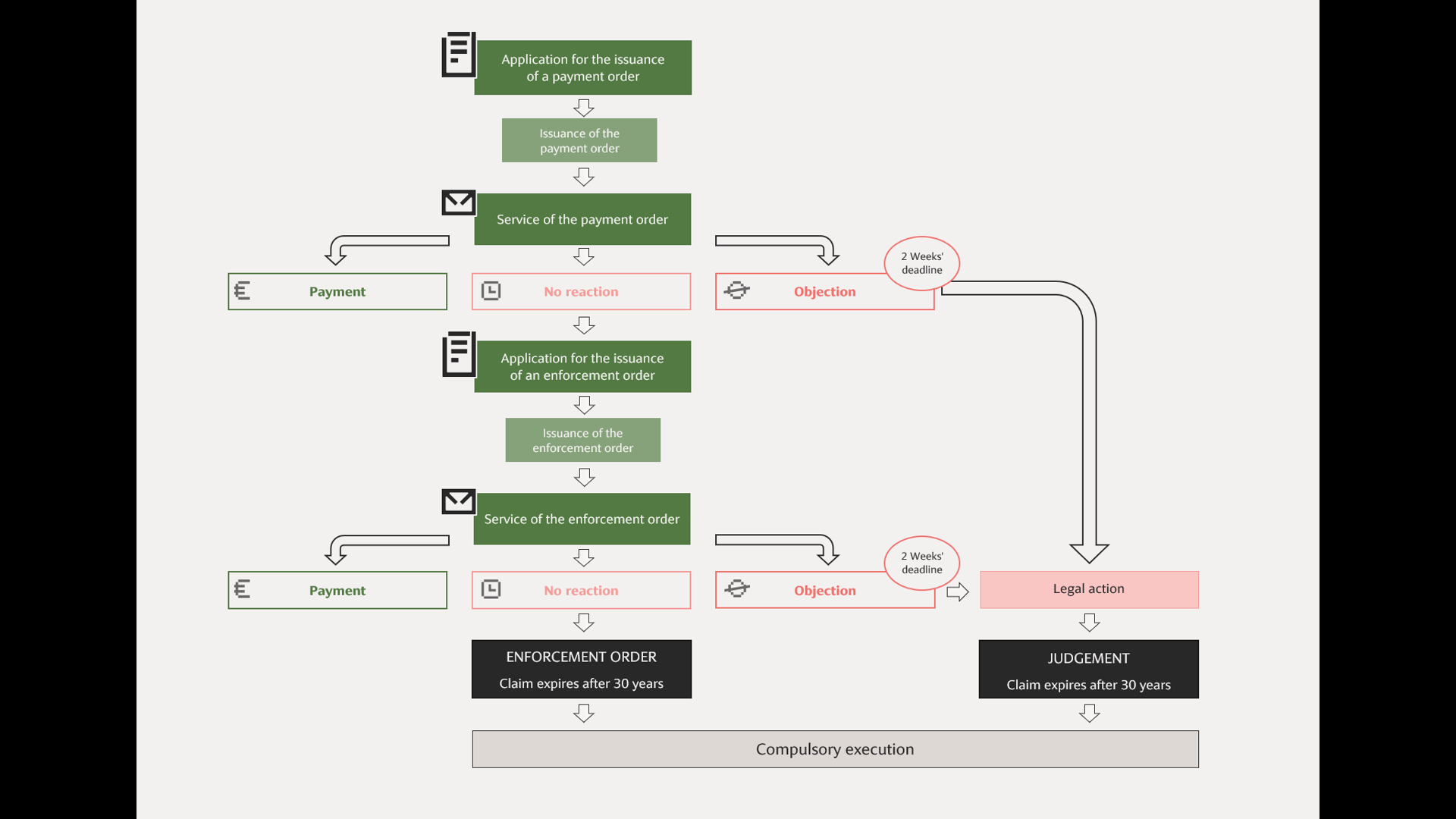Objection to the default summons – what does that mean?
In case you receive a default summons, you have 3 possibilities: you pay, you don’t react, or you lodge an objection.
If the default summons is justified, it would be easiest to pay everything directly. Some don't react at all – probably because, at the time, they do not see any other solution. Or they might simply lack the financial resources.
However, if the default summons is not justified and this can be proven, an objection can be filed against the default summons.

What does it mean to file an objection against the default summons?
The objection is a legal remedy that can be filed by the defendant against the default summons if the claim asserted in it is not justified. It is possible to object to the entire claim or only to a part of it. The objection puts an end to the current dunning procedure. The petitioning party cannot apply for an enforcement order. If it wishes to continue the proceedings, it must initiate legal action, which will be decided by a court of dispute.
A lawsuit does not only mean higher costs, but also an enormous expenditure of time on both sides.
The sequence of the judicial dunning procedure
and what happens after an objection has been lodged.
How to correctly fill out the objection to the default summons
The following information should be filled in the objection form:
- Date and reference number of the local court
- Details of the creditor – applicant
- Details of the debtor – defendant
- Address
- Contact details of your lawyer – if you wish to be represented by a lawyer
- Explicit confirmation of the objection with either "I object to the claim as a whole" or "I object to only part of the claim" - whichever applies in your case
- Detailed statement of why and against what exactly you are objecting
The most important thing is your reasoning! Enclose a detailed statement of reasons with the objection - ideally with copies of all documents that make your objection comprehensible. This way, the matter can immediately be examined in full.
Objection due to payment difficulties
In the event that the claim is justified but you are currently unable to pay, please do not file an objection under any circumstances.
Inability to pay is not an accepted ground for objection!
In this case, contact either the creditor or the authorised debt collection agency/ the authorised lawyer directly and try to conclude a payment agreement - for example in the form of instalment payments!
What happens after the objection against the default summons?
The objection ends the current dunning proceedings. Now the further course of action is in the hands of the claimant. If they continue to insist on the settlement of the claim, they can initiate normal court proceedings in the next step, i.e. a civil lawsuit. This is officially called "transition to the adversary proceedings". If such proceedings take place and the claimant wins, the defendant will not only have to settle the claim but also pay for the entire legal costs of the court proceedings.
Our tip
Do not file an objection under any circumstances if the claim is justified. A settlement without legal action is the more cost-effective way in this case!
Can the objection be withdrawn?
If you subsequently find that the claim was justified after all, you can withdraw your objection until the start of the oral proceedings.
If you wait until after the start of the oral proceedings to withdraw your objection, you will have to pay the entire legal costs of the legal action in addition to the original claim.
So withdraw the objection as soon as possible!
What about the limitation of the claim after an objection?
The regular limitation period for a claim is 3 years. With the service of the default summons, the running of the limitation period is initially interrupted – the legally correct term for this is suspension of the statute of limitations. If the adversary proceedings are not initiated within 6 months after the objection against the order for payment, the suspension of the statute of limitations loses its effect. This means that the claim becomes statute-barred after 3 years - as was the case before the initiation of the judicial dunning proceedings.
But beware: Even if the 6-month period has expired after an objection, the claim can still be brought before a civil court within the 3-year limitation period.
Conclusion
To avoid lengthy proceedings, the best way is to contact the claimant directly and find an out-of-court solution together.
Identity
Please understand that for reasons of readability we only use the grammatically masculine form when referring to persons. This always refers to people of any gender identity.




